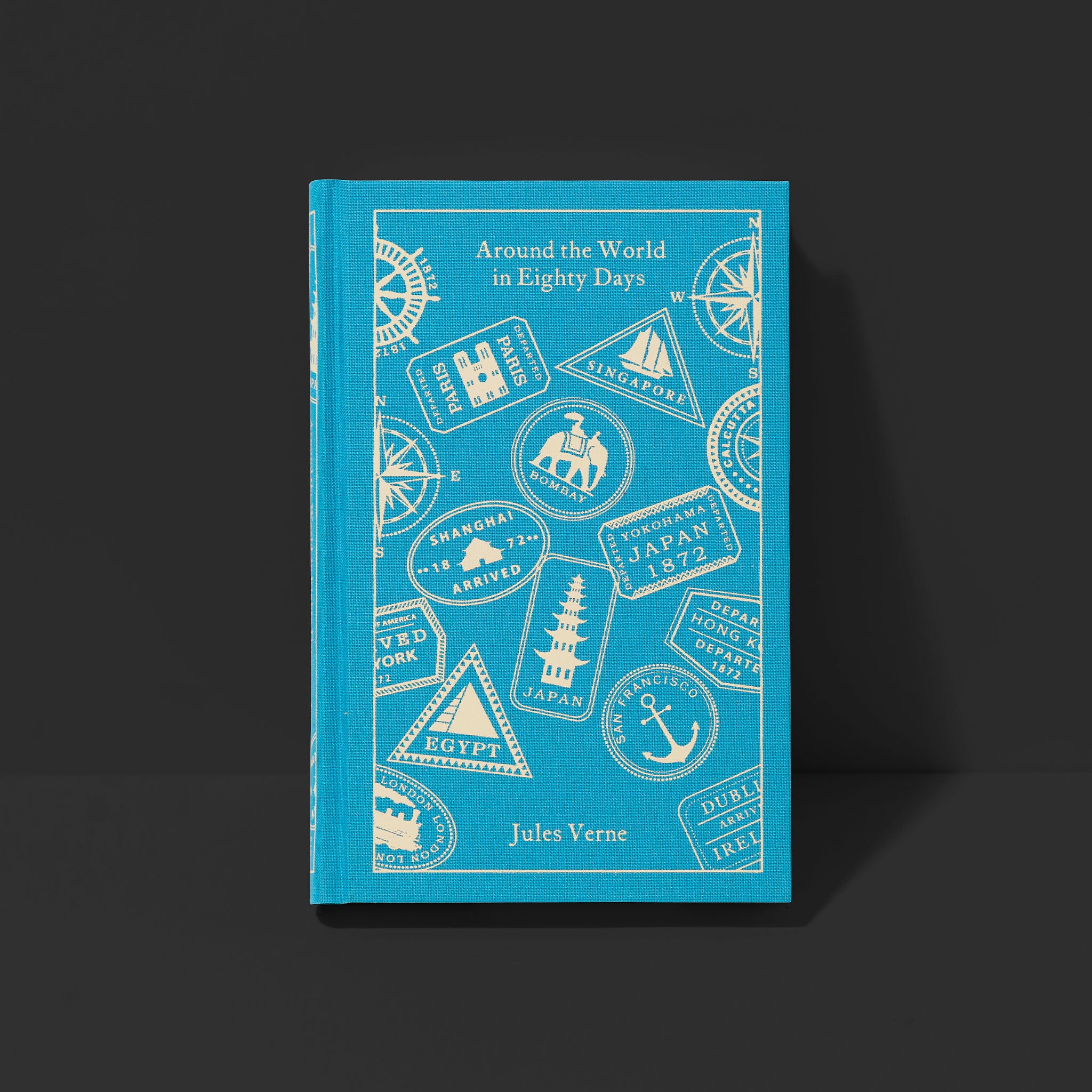Around the World in 80 Days, by Jules Verne
An atlas of the world in 1872 taking the form of a novel.

Set in 1872, Verne’s novel offers a look into a world which preceded the age of immediacy we live in today. The second half of the 19th century was an age of tremendous technological advancement, and Verne aptly exposes the contemporary fascination for speed, efficiency, and audacity through the character of Phileas Fogg, the phlegmatic protagonist of the story.
The honourable Mr. Fogg and his trusty companion Jean Passepartout travelled across the world in precisely 80 days on a wager thought impossible to win, and during their travels also provide the reader with an insight on many foreign cultures:
- In India, we are exposed to the vast stretches of territory yet untouched by British colonisation — with a characteristic disdain for local practises which was common at the time, but through which we are presented to the barbaric practise of sati (the sacrifice of a widow) and the introduction of the noble Ms. Aouda.
- While in China, the cultural fascination for opium (of which its trade in China was heavily expanded by the British) led to the temporary separation of the two main characters at the orchestration of the (by the end redeemed) main antagonist.
- And the stop in Yokohama explores the rapid advancement of Japanese society during the Meiji Restoration.
However, I argue that the most interesting cultural commentary of the book comes in the form of the chapters taking place during the crossing of the vast American continent. Verne’s description of the United States’ political culture and society is remminiscent of the French philosopher and politician Alexis de Tocqueville, whose study of America highlights its vibrant civil society and democratic values.
During the crossing of America, Mr. Fogg and his trusty companions experience the bustling, modern city of San Francisco, and the high spirits over which politics are conducted in the great nation. The election of a low public official in this city drew crowds onto rallies and into street fights, a very Yankee sort of behaviour — the democratic spirit being very much alive in every aspect of society. Likewise, crossing Utah and the inner Western states, we are taught a good lesson on the dynamics and history of the growing (and then prosecuted) Mormon movement which caught the interest of many contemporaries. And finally, from the Midwest to the journey from New York back to Europe, the great technological and entrepreneurial nature of the United States is put into perspective, being a respected characteristic of the fledgeling nation across Europe. In a choice of words that I can only assume Verne chose to use in a positive light, Mr. Fogg, after buying the upper hull of the steamer which was to bring him back to Europe, wishing to use it for fuel (at considerable price and for such an eccentric end), receives the following compliment:
Captain Fogg, you’ve got something of the Yankee about you.
Perhaps that American way of life, which drove the US to greatness over the centuries that followed, deserves greater consideration from us Europeans of the 21st century, and we too should have something of the Yankee about ourselves.
Verne’s ability to describe such a voyage was certainly owed in large part to his extraordinary imagination. However, the French writer not only had a great originality of thought, but also had been a tremendous reader of the events of his time. Around the World in 80 Days is not only an exciting story and a marvel to read — as a reader, I could not help but be glued to its narrative, its vivid descriptions, and its eventful course of events — but it is especially a representative time capsule of the events, developments, and worries which were on the minds of contemporaries of Verne.
I am glad I got around to finally reading this book, and will certainly recommend you do the same if you have not done so yet.